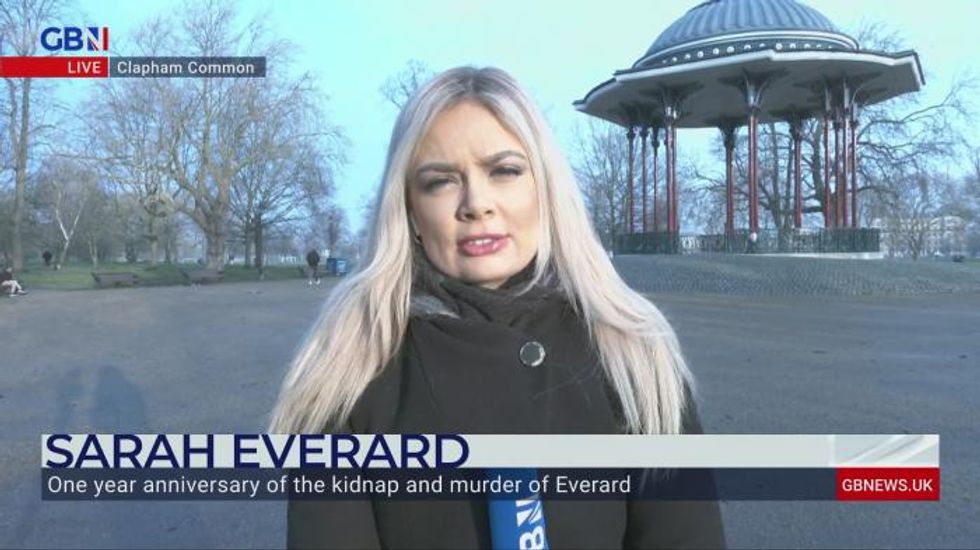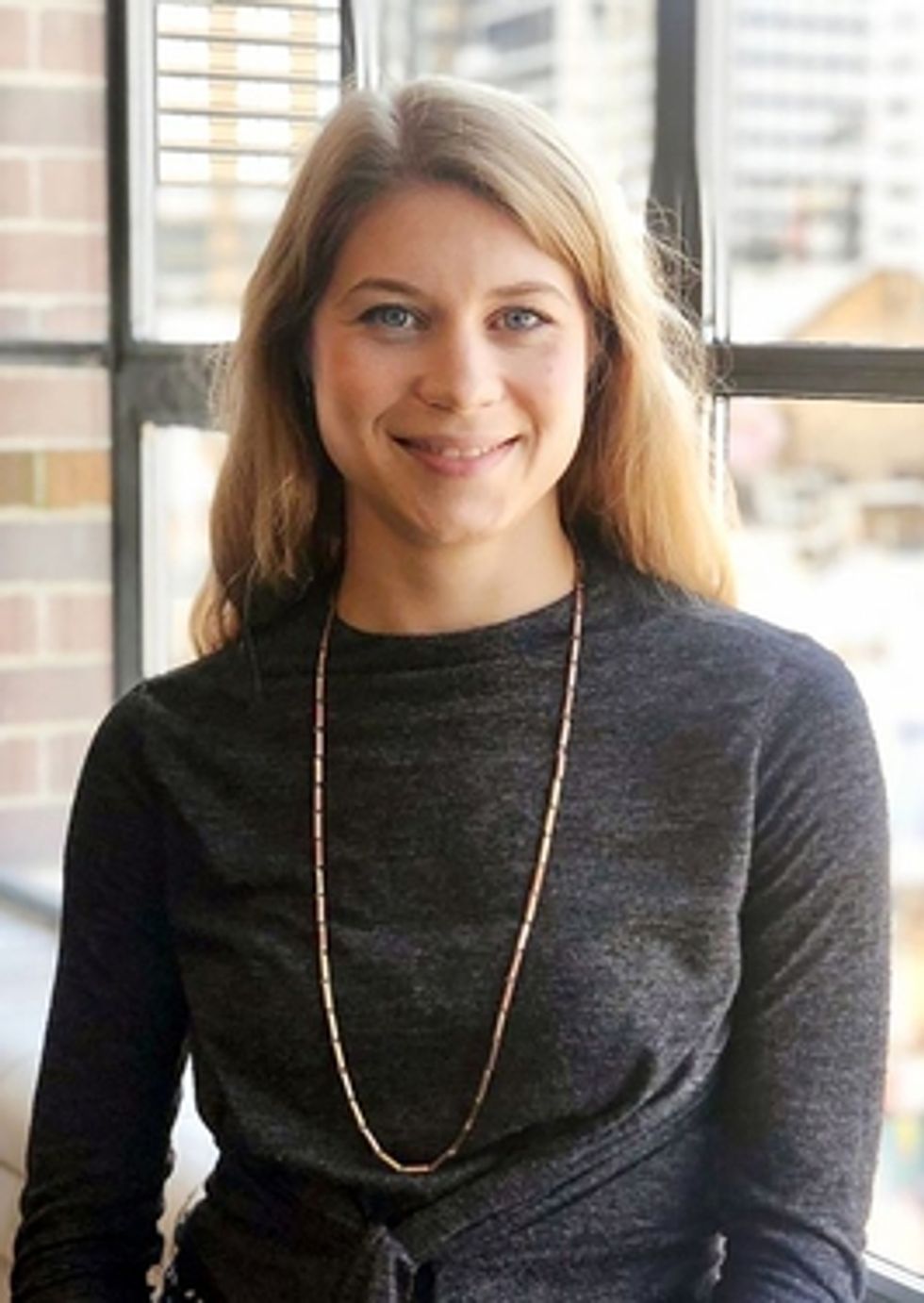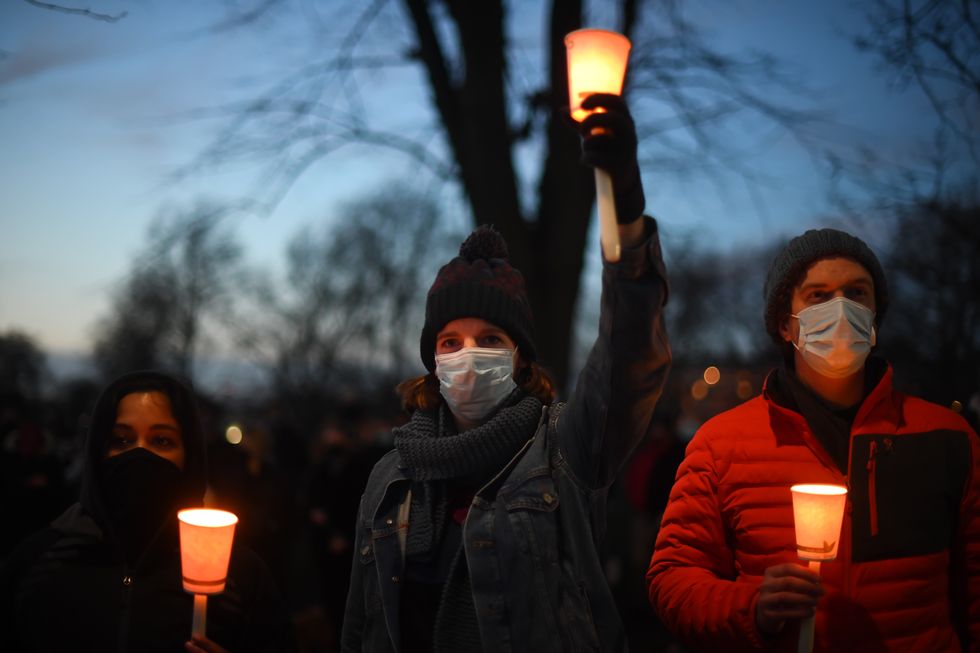In March 2021, public confidence in the police was shaken when one of the force’s armed officers Wayne Couzens kidnapped, raped and murdered Sarah Everard
Don't Miss
Most Read
Trending on GB News
The founder of an app designed to help women feel safer has highlighted the lack of trust in authorities, as well as the police’s failure to understand the problems women face as key contributors to the reason why so many incidents involving women are not properly investigated or reported in the first place.
Neta Schreiber is the founder of SafeUP, a social network which enables women to feel safer when they are on their own through support, guidance, or physical assistance.
Users can open the app if they feel unsafe and are shown “guardians” nearby who they can talk to and be guided to a safer location or can physically meet with.
Users can also contact the police directly through the app who will be shown their location and briefed on the incident by the “guardians”.
Sarah Everard
PA
Schreiber started the company following a personal incident ten years ago when she found a friend half naked in a fight with two men at a party, the men fled after they were seen which she says shows the importance of strength in numbers.
SafeUP’s own research found 9 in 10 women felt uncomfortable walking alone in the dark.
Speaking to GB News before the one-year anniversary of Sarah Everard's disappearance, Schreiber said: “Some of our users say ‘wow, that was amazing, I could help someone like that’ and they become guardians.
“Unfortunately, you can feel unsafe whether you are 16 or 60, nothing changes.”
She continued: “The very radical feminists will say ‘I don’t want this app’.
“It’s a range of opinion, we definitely believe we need to work together, men and women, to create a change.
“Today, women all over the world want to be active to make a change, we can do that we just need to connect together and put effort into that.”
Asked why women do not always report incidents to the police, Neta said: “They might not trust the authorities, there is a lot of trust problems in the police.
“In all the grey cases when no one attacked me I was just afraid it was going to happen.
“The police don’t know how to act, they need to see blood to take action.
“Even when something happens, women do not call the police.”
In March last year, public confidence in the police was shaken when one of the force’s armed officers Wayne Couzens kidnapped, raped and murdered Sarah Everard, days after he had indecently exposed himself in a fast food restaurant – prompting a national debate about sexual violence, the safety of women and trust in the police.
The Met was heavily criticised for its handling of a vigil held in Miss Everard’s memory and to raise awareness of the dangers faced by women on the streets.
Solace Women’s aid is a domestic abuse charity which supports over 23,000 women and girls each year.
A spokeswoman from the charity has suggested that the police need to start treating violence against women as a “national threat”.
They told GB News: “The first step needs to be for the Government to make violence against women and girls (VAWG) a strategic policing requirement, recognising this as a national threat and requiring the Government to ensure that enough resources are in place to respond to the serious nature of this crime.
“We also need to ensure the police service is fit for purpose and tackles VAWG – something it is currently not demonstrating.
“We need a public inquiry into police culture and a programme of reforms to root out misogyny, racism and homophobia from the police so women can trust that they will help keep them safe.”
A woman holds a candle at a vigil for Sarah in 2021.
Victoria Jones
Asked about about the future of the police force after Dame Cressida Dick’s decision to step down from her position, they said: “Whilst we support a change of leadership, the problems of misogyny and racism run right through the force.
“The new Commissioner must prioritise overhauling the complaints and disciplinary process in the force which has proven time and time again that it does not work and fails to take action against perpetrators.
“We need vetting procedures that thoroughly assess individuals to prevent people with misogynist and racist views being put into such positions of power.”
Similarly, Neta Schreiber urged for a change in approach from those in charge, as well as the police.
She said “They need to stop ignoring the problem, they need to understand the problem.
“Women do not report to the authorities so they don’t really know what the problem looks like.
“It always goes back to education in the end, I believe everything starts from education, this is the government’s job to do.”











